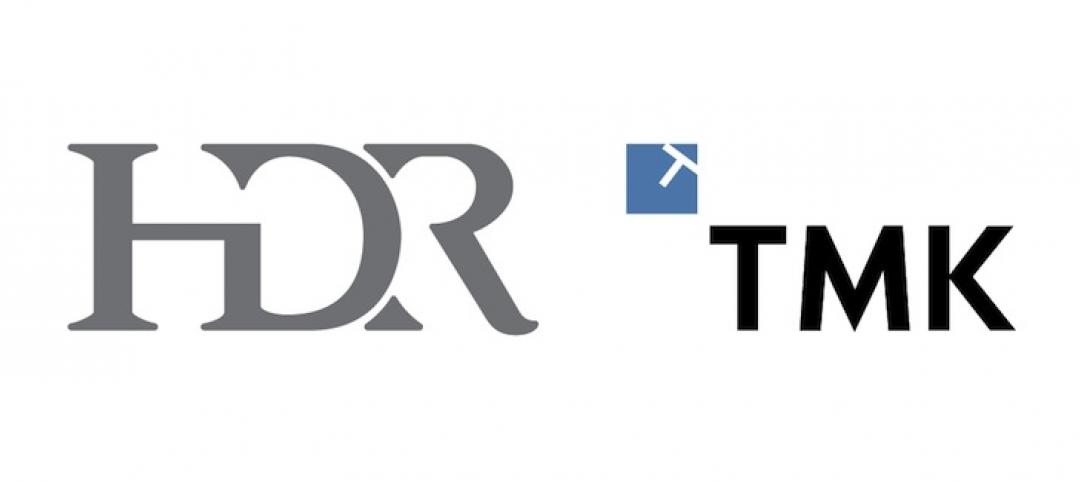Washington, D.C. - March 24, 2010 - Following a drop of nearly three points, the Architecture Billings Index (ABI) nudged up almost two points in February. As a leading economic indicator of construction activity, the ABI reflects the approximate nine to twelve month lag time between architecture billings and construction spending. The American Institute of Architects (AIA) reported the February ABI rating was 44.8, up from a reading of 42.5 in January. This score indicates a continued decline in demand for design services (any score above 50 indicates an increase in billings). The new projects inquiry score was 52.0.
"We continue to hear that funding dedicated for construction projects in the stimulus package has not yet been awarded, resulting in a bottleneck of potential projects that could help jumpstart the economy," said AIA Chief Economist Kermit Baker, PhD, Hon. AIA. "That, coupled with a persistently rigid credit market for private sector projects, is a key reason why the design and construction industry continue to suffer at near historic levels in terms of job losses."
Key February ABI highlights:
Regional averages: Midwest (49.4), Northeast (44.1), West (43.6), South (40.7)
Sector index breakdown: multi-family residential (47.3), institutional (44.2), mixed practice (43.3), commercial / industrial (43.2)
Project inquiries index: 52.0
About the AIA Architecture Billings Index
The Architecture Billings Index is derived from a monthly "Work-on-the-Boards" survey and produced by the AIA Economics & Market Research Group. Based on a comparison of data compiled since the survey's inception in 1995 with figures from the Department of Commerce on Construction Put in Place, the findings amount to a leading economic indicator that provides an approximately nine to twelve month glimpse into the future of nonresidential construction activity. The diffusion indexes contained in the full report are derived from a monthly survey sent to a panel of AIA member-owned firms. Participants are asked whether their billings increased, decreased, or stayed the same in the month that just ended. According to the proportion of respondents choosing each option, a score is generated, which represents an index value for each month. The regional and sector data is formulated using a three-month moving average.
About The American Institute of Architects
For over 150 years, members of the American Institute of Architects have worked with each other and their communities to create more valuable, healthy, secure, and sustainable buildings and cityscapes. By using sustainable design practices, materials, and techniques, AIA architects are uniquely poised to provide the leadership and guidance needed to provide solutions to address climate change. AIA architects walk the walk on sustainable design. Visit www.aia.org
Related Stories
| Mar 5, 2013
Recycled recreation: Waste-to-energy plant combines with ski resort
A new project near Copenhagen pushes the boundaries of the term "mixed use," combining a waste-to-energy plant with a ski resort.
| Mar 5, 2013
Barbara Mullenex joins Washington, D.C., office of Perkins Eastman as principal
The Board of Directors of top international design and architecture firm Perkins Eastman is pleased to announce that Barbara Mullenex RA has joined the growing Washington, DC, office as a Principal. Mullenex joins with a distinguished career of more than 26 years of industry experience in architecture and interior design focused on hospitality and corporate interiors.
| Mar 4, 2013
Dewberry names James Draheim president of architectural practice
Dewberry, a privately held professional services firm, has recently hired James Draheim, AIA, LEED AP BD+C, as president of the firm’s 175-person nationwide architectural practice. Draheim will be responsible for all facets of the firm’s business development, operations, strategic planning, and growth.
| Mar 4, 2013
German healthcare design specialist TMK Architekten joins HDR Architecture
TMK Architekten • Ingenieure, one of Germany’s leading healthcare architecture firms, announced today that it is joining forces with HDR Architecture, the world’s No. 1 healthcare and science + technology design firm. The merged company will conduct business as HDR TMK, and will be the hub for the firm’s healthcare and science + technology design programs in Europe.
| Mar 4, 2013
Korean Air, AC Martin collaborating on Western region's tallest tower
The 1,100-foot Wilshire Grand will combine retail and restaurant space, offices, and a luxury hotel in the sky.
| Mar 4, 2013
Gehry unveils design for Santa Monica hotel-condo tower
If all goes as planned, Frank Gehry will design the first building in his hometown in some 25 years.
| Mar 3, 2013
World's first LEGO museum planned in Denmark
Bjarke Ingels Group and Ralph Appelbaum Associates will team up with the LEGO Group to design the physical home for The LEGO House, the world's first museum dedicated to LEGO.
| Feb 28, 2013
Daniel J. Rectenwald promoted to chief operating officer of HGA
HGA Architects and Engineers (HGA) has promoted Daniel J. Rectenwald, AIA, to Chief Operating Officer. He will oversee daily operation of the firm’s design and business strategies across seven national offices.
| Feb 28, 2013
Videos reveal City 2.0 ideas from 2012 TED Prize winners
Thought leader TED has released eight new videos from winners of its 2012 TED Prize: the City 2.0. The prize went to 10 winners involved in urban issues, including education, safety, health, food, and public space.
| Feb 28, 2013
Greeening Silicon Valley: Samsung's new 1.1 million-sf HQ
Samsung Electronics' new 1.1 million sf San Jose campus will support at least 2,500 sales and R&D staff in the company's semiconductor and display businesses.
















